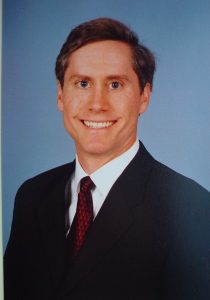By Michael Tuite, MD
At the University of Wisconsin Hospital, we have had time to prepare for the expected surge of COVID-19 and have instituted progressive planning. We first identified, working with specialty ordering provider leaders, the studies and procedures (such as gastrointestinal studies and joint injections) that could be considered nonurgent, and our radiology schedulers called these patients and rescheduled them for six weeks out. Our interventional radiology teams went through all their procedures and appointments, rescheduled what they could, and did some clinic appointments over the phone.

For some outpatient radiology appointments, we were uncertain from the indication/study combination if they were urgent or not. The other department chairs wanted their providers to be able to give input on which could be rescheduled. We therefore had our IT group run an Excel spreadsheet of all outpatient studies and procedures, sorted by department. The clinical departments then sorted the studies by provider and sent them to each provider to be categorized as urgent or nonurgent. Our radiology schedulers then also rescheduled all these appointments classified as nonurgent out six weeks. We have repeated that process every two weeks and plan to continue until the number of COVID-19 cases drop.
As the outpatient volume has decreased, we have reduced our technologist, nursing, and radiologist staffing to the minimum necessary to do the onsite work. Some of our nurses and technologists have been redeployed – nurses to other areas in the hospital and technologists to help with screening at the hospital entrance.
All radiologists have “2+1 monitor” home PACS workstations, so those who only need to do diagnostic reads for a shift are working from home. When radiologists need to come into the hospital, each section has split their members into cohorts who work at a single site for at least a week at a time. Each section/division has revised their staff schedule to have more people not working clinically, knowing that we’ll need to have additional radiologists working after the surge is over to accommodate the expected increased volume as we temporarily run more hours for our scanners and procedures.
Like most hospitals, we are seeing increased portable chest x-rays, and our technologists are reusing masks by wearing face shields. We worry about their contact with COVID-positive and suspected patients, so we have started taking chest x-rays through the glass doors and having the floor and emergency department nurses already in the room place the digital radiograph plate behind the patient. We have brought our outpatient technologists to the hospital to learn the layout and processes so they can step in and perform the imaging when needed. Radiologists are showing our appreciation for our frontline staff by working with area restaurants and caterers to buy meals to be delivered to the hospital technologists.
We are still waiting for the surge in volume but hope that our contingency planning and efforts to keep our radiologists mostly working from home will allow us to provide radiology services even in our most busy times.
Dr. Tuite is a professor of musculoskeletal radiology and vice chair of clinical operations at the University of Wisconsin Hospital.


